Our CEO & Festival Director, Kerri Glasscock, has joined ‘our own Justice League’ – the NSW Government’s 24-hour Economy Advisory Group, giving the independent arts community a voice in planning how our night-time culture rebuilds once restrictions lift.
The following excerpt is taken from a Sydney Morning Herald article published on the 26th September 2021.
By Andrew Taylor
It’s the “Justice League” formed to rescue Sydney’s nightlife after years of lockouts and lockdowns – and, like the movie superheroes, their mission is not for mere mortals.
But the state’s 24-Hour Economy Commissioner Michael Rodrigues is confident the 40 members of the 24-Hour Economy Advisory Group, drawn from the hospitality and entertainment sectors, are up to the task of enticing residents to leave their homes.
“They represent the absolute best of the sector,” he said. “[It’s] our own Justice League dedicated to bringing fun and enjoyment back to our communities and supporting businesses and staff who have had an incredibly difficult 18 months.”
The group includes high-level representatives from hospitality associations and businesses such as Justin Hemmes’ Merivale, The Star, festivals, venues, local governments and the music industry. Jobs Minister Stuart Ayres has tasked them with laying the groundwork for Sydney to become “a truly 24-hour city”.
One of their first major tasks is to encourage people to get out and about after the lockdown ends, following nearly two years of restrictions that have reshaped people’s behaviour and habits. It will also focus on diversifying Sydney’s nightlife beyond what Mr Rodrigues has called an Anglo-Saxon drinking culture.
“I’m a big fan of the pub, and can’t wait to grab a beer at my local, but we also need attractions that don’t necessarily revolve around alcohol, be they night markets, live performance or retail,” he said.
Justine Baker, chief executive of the Night Time Industries Association and a member of the group, said it was important nightlife was not limited to inner-city Sydney.
“NSW should have booming night-time economies in all areas,” she said. “The city will always be a big drawcard for major events and a different experience from the local night out [but] we should be looking at activating the night-time economy across the state.”
Solotel chief executive Elliot Solomon, another member of the group, expects people will flock to pubs and bars when they reopen next month. Guests at Solotel venues such as The Clock in Surry Hills and The Golden Sheaf in Double Bay will have the added reassurance that other guests and staff are fully vaccinated.
But navigating the plethora of COVID rules and regulations will be a complex task for bar owners and door staff, at least in the medium term.
Karl Schlothauer, president of the Independent Bars Association NSW and owner of three bars in Sydney and the Central Coast, said the likely imposition of vaccine passports would create “great debates at the door” at venues.
“We bar guests from venues for all different types of reasons, like being intoxicated, being a dickhead, naked, high or just causing trouble,” he said. “Once vaccine passports are mandated, the decision to let people into our venues will be out of our hands.”
The group’s members recognise QR codes are likely to remain a feature of going out for some time, as will hygiene measures. But Ms Baker said the sector wanted masks, venue limits and social distancing removed by December 2022.
“The reality is that COVID will be with us for years, so we need to look at longer term strategies that give all our population the opportunity to engage with life again,” she said.
“Many European countries use a mixed strategy of vaccination, rapid antigen testing, antibody testing and PCR tests to allow the whole population access to our sector. We would like to see the debate shift along these lines.”
Other members of the advisory group predict Sydney’s nightlife will take time to resurrect. Jane Slingo, director of the Electronic Music Conference, said many venues where dancing is the primary activity would not reopen when 70 per cent of the state is vaccinated.
“There’s definitely a big yearning for social experiences, but I don’t expect we will see people flocking to night-time venues in droves until live music is able to return meaningfully,” she said. “When dancing is possible again – this signifies the moment we have genuine freedom.”
Support for moving nightlife outdoors is widespread but faces inevitable conflict with neighbours accustomed to silent nights.
“Extended lockdowns have led to people living a very quiet life,” Ms Slingo said. “It is definitely a big challenge to address in the reopening stages.”
Additional measures such as air ventilation and rapid antigen testing should be explored to enable activities safely indoors and mitigate the risk of further lockdowns, Ms Slingo said.
Mr Schlothauer said overseas experience showed that COVID infections will rise and transmission will occur indoors once venues reopen. This would be a particular issue for small bars and underground venues that don’t have an outdoor footprint for alfresco entertainment.
He also expressed concern about a repeat of the United Kingdom’s “pingdemic” in which hundreds of thousands of people were ordered to self-isolate because they had spent more than 15 minutes within two metres of a confirmed case.
“If staff are forced to isolate for two weeks due to a positive case visiting a venue, the stop/start nature of opening and closing will crush businesses and lead to more people leaving the industry,” Mr Schlothauer said.
“Some level of compensation will also need to be considered if venues are required to close due to the potential isolation of staff.”
Hospitality venues are also grappling with a shortage of skilled staff exacerbated by the pandemic.
“Until borders reopen to allow international skilled visa holders and students back into Australia, the hospitality recruitment pool here is going to remain squeezed,” Mr Solomon said.
Festivals also required financial support until the removal of all pandemic restrictions, said Julia Robinson, general manager of the Australian Festival Association.
“The pain doesn’t end for us once lockdowns are over. We need to see crowds dancing at 100 per cent capacity before a collective sigh of relief can occur,” she said.
Ms Robinson said yo-yo lockdowns were the greatest concern for festival organisers. “Long lead times in planning mean that uncertainty is the biggest barrier to operation.”

Justine Baker, the Chair of Night Time Industries Association in Newtown, CREDIT: JANIE BARRETT



